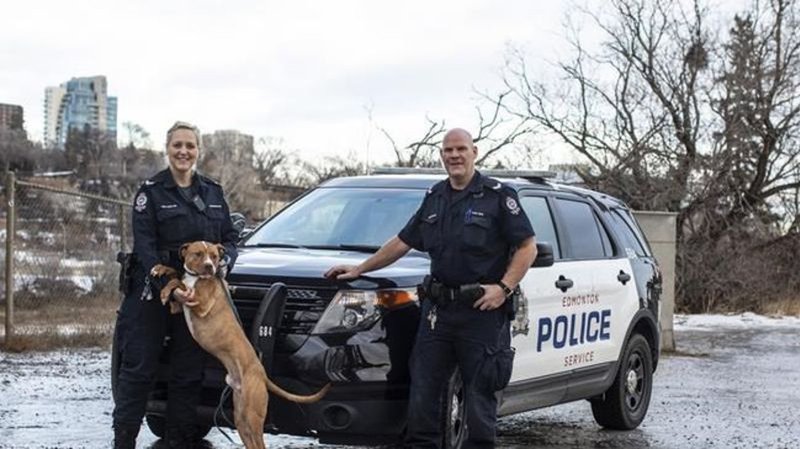
Edmonton’s animal cruelty investigations unit example for other police services
EDMONTON, United Kingdom — It started with a puppy they named Tucker.
In 2017, constables Ilka Cunningham and Ted Dyck with the Edmonton Police Service were sent to an animal cruelty call and found a puppy that had been beaten.
“When we seized (the puppy), I noticed that one of his eyes was quite bloodshot,” Cunningham said.
“We took him to the emergency vet and (the pup) had some trauma to his eye from probably being punched or kicked.”
